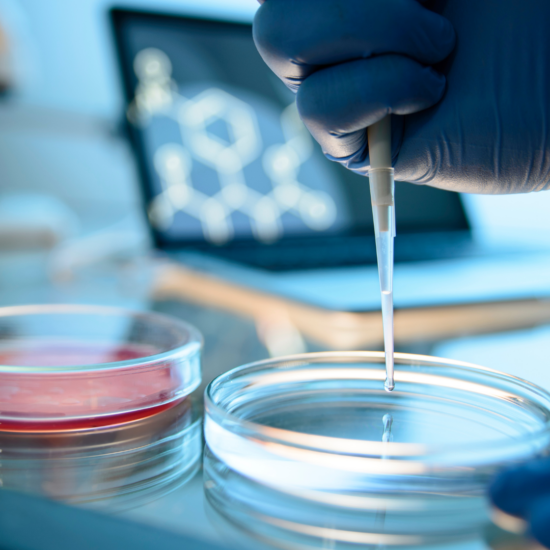Innovating Non-Clinical Testing: NAMs and ESG Impact
Published Jul 21, 2025
Published 29th September 2023

In the realm of modern medicine, the advent of mRNA vaccines has revolutionised the way we approach immunisation. These innovative vaccines have demonstrated their efficacy in combating diseases such as COVID-19, opening new avenues for preventing a range of infectious diseases. In addition, they are also viewed as an important new starting point for the develop of vaccines for cancer. As these ground breaking vaccines continue to evolve, the need for comprehensive quality guidelines becomes paramount. This blog delves into the significance of developing a guideline focused on the quality aspects of mRNA vaccines, highlighting its potential impact on pharmaceutical companies, vaccine development, regulatory processes, and public health.
Messenger RNA (mRNA) vaccines represent a remarkable leap in vaccine technology. Unlike traditional vaccines, which often use weakened or inactivated pathogens, mRNA vaccines introduce a small piece of genetic material that instructs cells in the body to produce a harmless part of the target pathogen. This prompts the immune system to recognise and respond to the foreign antigen, effectively training it to fight the actual pathogen if encountered in the future. The success of mRNA vaccines against COVID-19 has demonstrated their potential to provide rapid and targeted protection against infectious diseases.
As with any medical intervention, ensuring the safety, efficacy, and consistency of mRNA vaccines is of paramount importance. A well-structured guideline that addresses various quality aspects will provide a roadmap for manufacturers, regulators, and researchers, helping to establish robust protocols and standards. This guideline will encompass several key areas:
Defining stringent manufacturing processes to maintain consistency in vaccine production, including raw material sourcing, formulation, and quality control measures.
Outlining validated methods for assessing the quality, purity, and potency of mRNA vaccines, which are critical for both preclinical and clinical studies.
Establishing protocols for determining the stability of mRNA vaccines under different storage conditions to ensure their viability during distribution and administration.
The development of a guideline on the quality aspects of mRNA vaccines requires a collaborative effort involving experts from various fields, including biotechnology, immunology, regulatory affairs, and public health. In particular, the WHO guidance document, Annex 3 “Evaluation of the quality, safety and efficacy of messenger RNA vaccines for the prevention of infectious diseases: regulatory considerations”, WHO technical report Series, No.1039, 2022 will be taken into account. In addition, reference will be made to current and future Ph. Eur. chapters and/or monographs, where applicable.
1. The concept paper will be published for a three-month public consultation period.
2. The Biologics Working Party (BWP) will take account of all comments received during this period when preparing the draft guideline.
3. The draft guideline will be published for a six-month public consultation period. This period is a critical opportunity for industry and researchers to comment, thus shaping the development of the guidance and helping to define the most important requirements. This is crucial to keep the guidance relevant in a fast-evolving area. After consultation, the BWP will take account of all comments received on the draft guideline when preparing the final guideline text. It is expected that the final guideline will come into operation six months after publication following adoption by CHMP. Based on the above timelines, the approximate date for the issue of the final guidance would be March 2024.
The development and implementation of a quality guideline for mRNA vaccines offer several significant advantages:
By establishing rigorous quality standards, the guideline minimises the risk of adverse events and ensures the safety of vaccine recipients.
Clear protocols and standards streamline the vaccine development process, potentially expediting the response to emerging infectious diseases.
A harmonised guideline facilitates international collaboration and equitable access to mRNA vaccines, especially in regions with limited resources.
Consistency in vaccine quality builds public trust and confidence in immunisation programs, leading to higher vaccination rates.
In the era of mRNA vaccines, the development of a comprehensive guideline on quality aspects is not just a choice but a necessity. Such a guideline would not only elevate the standards of vaccine development and evaluation but also contribute to a more resilient and prepared global healthcare ecosystem. As science continues to push the boundaries of innovation, these guidelines will play a pivotal role in realising the full potential of mRNA vaccines for the betterment of humanity.
DLRC’s team of CMC and biologic experts are able to advise on current regulations concerning mRNA vaccines based on our previous experience in this area, and will also be able to advise on this emerging guideline. To speak to our experts, email us at hello@dlrcgoup.com or use the link below.

Published Jul 21, 2025

Published Jul 11, 2025

Published Jul 07, 2025

Published May 29, 2025

Published May 29, 2025

Published May 29, 2025

Published May 29, 2025

Published May 01, 2025

Published Apr 28, 2025